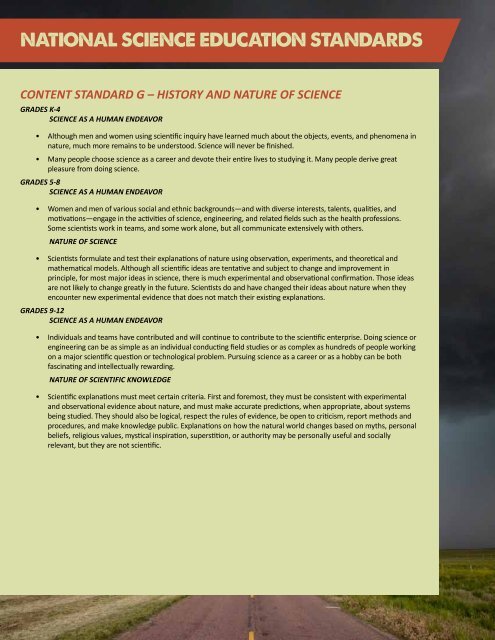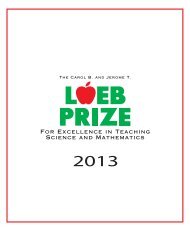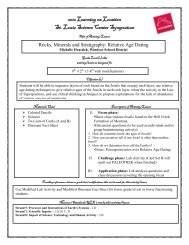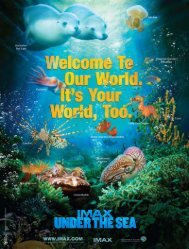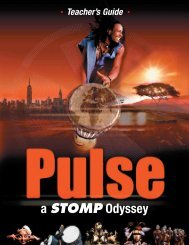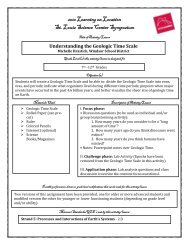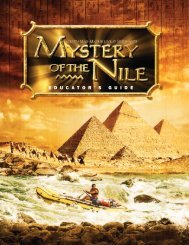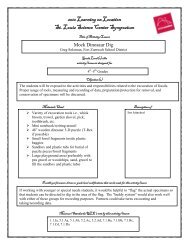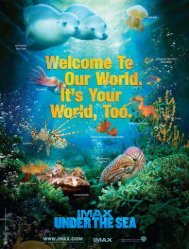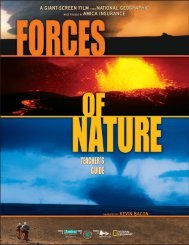Tornado Alley - Big Movie Zone
Tornado Alley - Big Movie Zone
Tornado Alley - Big Movie Zone
You also want an ePaper? Increase the reach of your titles
YUMPU automatically turns print PDFs into web optimized ePapers that Google loves.
CONTENT STANDARD G – HISTORY AND NATURE OF SCIENCE<br />
GRADES K-4<br />
SCIENCE AS A HUMAN ENDEAVOR<br />
• Although men and women using scientific inquiry have learned much about the objects, events, and phenomena in<br />
nature, much more remains to be understood. Science will never be finished.<br />
• Many people choose science as a career and devote their entire lives to studying it. Many people derive great<br />
pleasure from doing science.<br />
GRADES 5-8<br />
SCIENCE AS A HUMAN ENDEAVOR<br />
• Women and men of various social and ethnic backgrounds—and with diverse interests, talents, qualities, and<br />
motivations—engage in the activities of science, engineering, and related fields such as the health professions.<br />
Some scientists work in teams, and some work alone, but all communicate extensively with others.<br />
NATURE OF SCIENCE<br />
• Scientists formulate and test their explanations of nature using observation, experiments, and theoretical and<br />
mathematical models. Although all scientific ideas are tentative and subject to change and improvement in<br />
principle, for most major ideas in science, there is much experimental and observational confirmation. Those ideas<br />
are not likely to change greatly in the future. Scientists do and have changed their ideas about nature when they<br />
encounter new experimental evidence that does not match their existing explanations.<br />
GRADES 9-12<br />
SCIENCE AS A HUMAN ENDEAVOR<br />
• Individuals and teams have contributed and will continue to contribute to the scientific enterprise. Doing science or<br />
engineering can be as simple as an individual conducting field studies or as complex as hundreds of people working<br />
on a major scientific question or technological problem. Pursuing science as a career or as a hobby can be both<br />
fascinating and intellectually rewarding.<br />
NATURE OF SCIENTIFIC KNOWLEDGE<br />
• Scientific explanations must meet certain criteria. First and foremost, they must be consistent with experimental<br />
and observational evidence about nature, and must make accurate predictions, when appropriate, about systems<br />
being studied. They should also be logical, respect the rules of evidence, be open to criticism, report methods and<br />
procedures, and make knowledge public. Explanations on how the natural world changes based on myths, personal<br />
beliefs, religious values, mystical inspiration, superstition, or authority may be personally useful and socially<br />
relevant, but they are not scientific.


